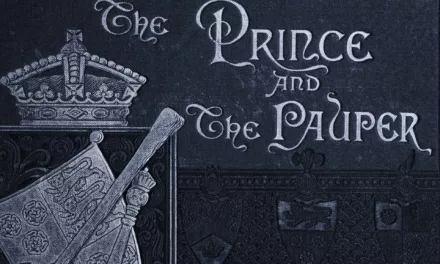
How do you stick with a writing project?

“hey pamela i have trouble sticking with stories so i end up abandoning them whats your advice?“
Jumping between projects is a common experience for writers, but it can leave you feeling frustrated when all you have to show for all your hard work is a collection of unfinished manuscripts rather than completed stories.
Why we abandon projects
The exciting rush of a new story idea is one of the biggest reasons for procrastination, because the new idea is almost always going to be more exciting than the current project which has entered the “work” phase of drafting. Understanding why we tend to abandon projects can help us refine strategies to stick with them.
Being drawn away by the allure of a shiny new idea that seems more exciting than our current work may be the biggest culprit, but it’s certainly not the only one. We might hit difficult plot points or a writing block the feels insurmountable. Self-doubt also frequently creeps in about the story’s worth, especially as the initial excitement for a project wears off. Sometimes we can even lose sight of where the story is going, or life simply gets in the way and we lose momentum.
All these reasons are real. And all these reasons are valid. The biggest challenge we face is not letting these challenges affect our self-worth as writers. We need to decide for ourselves when to stick with a story and when to let it go.
Why it’s sometimes OK to let go
First, let’s acknowledge that not every project needs to be finished. It’s perfectly valid to recognise when something isn’t working and needs to be shelved.
Some partial projects serve best as learning experiences, and will provide valuable lessons even if you never finish them. You might find yourself taking elements from abandoned projects and incorporating them into new works that better serve your vision as a writer.
As writers, we’re constantly learning and improving, so as we grow and develop, it’s natural to outgrow certain story ideas. Sometimes the most valuable thing you can do is practice writing without the pressure to complete everything. So when deciding to stick with a project, it’s important to keep this in the back of your mind. Some projects are worth the work, and some serve a different purpose.
Strategies for sticking with your project
With all that said, if you’ve taken the time to really question your project and decide whether it’s worth pursuing, here are song strategies that can help you stick with it.
Create a plan
Yes, I know that many of you reading this will be anti-plan, but I’m going on all in on this advice, anyway. If you’ve got to the point of questioning whether a project is worth pursuing, it means you’ve already lost the momentum that pantsing your project requires. You’ve moved past the point of telling yourself the story, and you’re going to need the structure that a plan provides to keep you moving forward.
You don’t need a detailed beat-by-beat plan, but you do need a clear roadmap for your story. This means taking the time to outline, even roughly, so you know where you’re heading. Think of it like setting goals and milestones. A plan will let you break your story into smaller, manageable chunks that feel less overwhelming.
Stay connected to your story
Check in with yourself periodically and remind yourself why you love writing this story. It’s one of the best ways to ensure long-term commitment.
I have a project journal where explore all the ideas that come up during writing. It’s a repository of everything that has inspired me and why, and it keeps me connected to what I’m writing. I can work through blocks, and talk to myself about story points I’m not sure about, and also fantasise about story elements that might never make it into the finished product. The point of it is to keep myself immersed. I also find it useful to regularly revisit my story’s core theme. Why did I want to write this and why was I originally excited about it?
Creating character profiles or mood boards can help also help immerse you in your narrative. Imagining things visually helps you engage another sense and can help with reference when you need inspiration. This also works in tandem with aesthetic isolation. Reading similar books, theming your music choices, or watching films and tv shows that share similarities with your work can also really help to keep you in the right headspace. It can also provide inspiration and fresh perspectives!
Keep yourself motivated
Successful completing a writing project often comes down to maintaining steady motivation. It’s the self-care part of writing that we often let fall by the wayside.
Set yourself goals and make them achievable. Then, make sure you reward yourself for meeting those milestones. That could be anything from a word count goal to finishing a challenging scene. Just make sure they’re actionable and achievable. And I can’t stress the achievable part enough. Ephemeral goals, or goals that are too difficult mean you’re setting yourself up for failure. Smaller targets that you manage to hit regularly will give you that little endorphin kick you need to keep going. You’ll feel good about the process instead of being overwhelmed.
Joining writing groups or finding an accountability partners is also a good way to keep up motivation. It can give you an external structure and support system you need to keep going, because all of a sudden you’re accountable to someone other than yourself.
Know how to handle common obstacles
When you’ve been writing for a while, you’ll quickly learn what your demotivation triggers are. And when you know what they are, it’s the first step in engaging strategies that will help you move past them.
I know that a common block of mine is transition scenes. I can write the scenes individually but can’t always see the way to get from one scene to the next. When I first started writing, I’d spend days and days on the ending of one chapter trying to come up with the perfect way to get to what I knew was going to happen in the next one. The result was that I just never got to the next one.
My strategy now is just to stop trying and move on to the next chapter. Usually the transition I come up with on the fly is “good enough” for a first draft, and once I have the full context of my story, I can usually see exactly what has to happen to improve it. By trying to get it right the first time, I was creating a block that stopped me every moving forward. By the task I struggle with becomes exponentially easier on revision.
If you’re stuck on a particular scene, try skipping ahead to one you’re more excited about. You can also keep a “story problems” document where you can work through issues without derailing your main writing sessions. I do fast-drafting, so if I want to change something or am moving on because of a block, I’ll leave myself a comment or note in the text and then just move on. Because there’s no such thing as a perfect first draft and it’s way too easy to get stuck.
Your techniques and obstacles will be unique to you, so the next time you feel demotivated or want to give up on your project, ask yourself why. Is it a common time for this to happen? And if so, why? What can you do to either overcome or skip this problem entirely?
Make a commitment
While there are strategies that can help you overcome the desire to give up on a project, the ultimate thing that will make the difference is just to make a commitment. Sometimes you just have to sit yourself down and say, “I’m going to get this done!”
Take some time to reflect on why you wanted to tell this story. What do you want to say with it? Do you still think this is important? And if not, why not?
Consider how you’ll feel if you never finish it. If it’s relief, then it might be time to move on to another project. If you’re sad, then you just have to decide to keep going. You can even identify a minimum daily effort needed to move forward if you want to be dispassionate about it.
Every finished book started as an idea that someone chose to stick with. The difference between writers who have finished a project versus one who hasn’t isn’t down to talent – it’s persistence.
Whether you choose to stay with your current project or move on to something new, make it a conscious choice rather than letting your passion fade. Sometimes the story you need to tell isn’t the one that came easily, but the one you fought to finish.






























